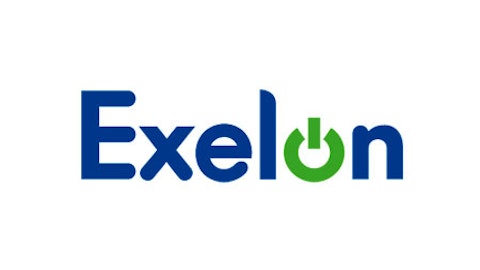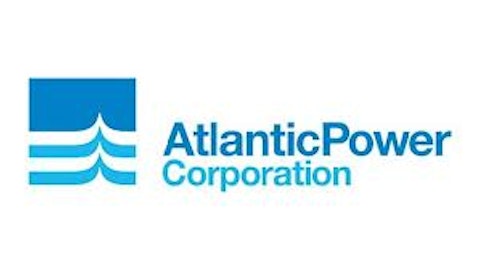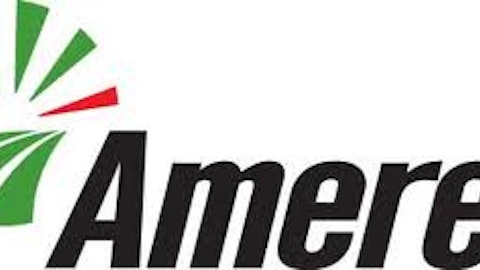As an investor, it pays to follow the cash. If you figure out how a company moves its money, you might eventually find some of that cash flowing into your pockets.
In this series, we’ll highlight four companies in an industry, and compare their “cash king margins” over time, trying to determine which has the greatest likelihood of putting cash back in your pocket. After all, a company can pay dividends and buy back stock only after it’s actually received cash — not just when it books those accounting figments known as “profits.”
Today, let’s look at Exelon Corporation (NYSE:EXC) and three of its peers.

The cash king margin
Looking at a company’s cash flow statement can help you determine whether its free cash flow actually backs up its reported profit. Companies that can create 10% or more free cash flow from their revenue can be powerful compounding machines for your portfolio. A sustained high cash king margin can be a good predictor of long-term stock returns.
To find the cash king margin, divide the free cash flow from the cash flow statement by sales: cash king margin = free cash flow / sales
Let’s take McDonald’s Corporation (NYSE:MCD)’s as an example. In the four quarters ending in December, the restaurateur generated $6.97 billion in operating cash flow. It invested about $3.05 billion in property, plant, and equipment. To calculate free cash flow, subtract McDonald’s investment from its operating cash flow. That leaves us with $3.92 billion in free cash flow, which the company can save for future expenditures or distribute to shareholders.
Taking McDonald’s sales of $25.5 billion over the same period, we can figure that the company has a cash king margin of about 14% — a nice high number. In other words, for every dollar of sales, McDonald’s produces $0.14 in free cash.
Ideally, we’d like to see the cash king margin top 10%. The best blue chips can notch numbers greater than 20%, making them true cash dynamos. But some businesses, including many types of retailing, just can’t sustain such margins.
We’re also looking for companies that can consistently increase their margins over time, which indicates that their competitive position is improving. Erratic swings in margins could signal a deteriorating business, or perhaps some financial skullduggery; you’ll have to dig deeper to discover the reason.
Four companies
Here are the cash king margins for four industry peers over a few periods.
| Company | Cash King Margin (TTM) | 1 Year Ago | 3 Years Ago | 5 Years Ago |
|---|---|---|---|---|
| Exelon Corporation (NYSE:EXC) | 1.4% | 4.3% | 16.3% | 9.6% |
| Southern (NYSE:SO) Company | 0.5% | 7.8% | (8.9%) | (0.7%) |
| Duke Energy Corp (NYSE:DUK) | (1.3%) | (4.9%) | (6.7%) | 0.7% |
| Dominion Resources, Inc. (NYSE:D) | (0.1%) | (4.7%) | (0.3%) | (28.4%) |
Source: S&P Capital IQ
None of these companies comes close to meeting our 10% threshold. Exelon offers the highest margins at 1.4%, but its current margins are the lowest they have been in five years. Southern’s margins are below 1%, and have declined dramatically since last year. However, its current margins are higher than they were five years ago. Duke and Dominion both have negative cash king margins. However, Duke’s margins are the best they have been in the past three periods, and Dominion’s margins are the best they have been in the past five years. While these companies don’t offer high cash king margins, they do offer high dividends. Exelon Corporation (NYSE:EXC)’s dividend yield is 3.6%, Southern’s is 4.3%, Duke’s is 4.4%, and Dominion’s yield is 4%.
Exelon Corporation (NYSE:EXC)’s involvement in nuclear, renewable, and fossil-fuel energy helps shield it from major shifts that harm any given area. For example, while the creation of new regulations requiring energy companies to convert coal-fired plants to gas-fired plants looked like they would level a major hit on companies focused on fossil fuels, like Southern and Duke, Exelon Corporation (NYSE:EXC)’s diversification shielded it from some of these threats. However, that competitive advantage was largely removed due to significant declines in the price of natural gas, which helped rivals lower production costs and make up for the financial hit leveled by the new environmental regulations. Dominion has also been able to take advantage of the boom in natural gas due to its involvement in delivering gas to individuals through its utility business and its ownership of natural gas pipelines and storage systems, which has allowed it to take advantage of Utica shale production.
The cash king margin can help you find highly profitable businesses, but it should only be the start of your search. The ratio does have its limits, especially for fast-growing small businesses. Many such companies reinvest all of their cash flow into growing the business, leaving them little or no free cash — but that doesn’t necessarily make them poor investments. Conversely, the formula works better for slower-growing blue chips. You’ll need to look closer to determine exactly how a company is using its cash.
Still, if you can cut through the earnings headlines to follow the cash instead, you might be on the path toward seriously great investments.
The article Is Exelon a Cash King? originally appeared on Fool.com.
Jim Royal owns shares of Southern Company and Exelon. The Motley Fool recommends Dominion Resources, Exelon, and Southern Company.
Copyright © 1995 – 2013 The Motley Fool, LLC. All rights reserved. The Motley Fool has a disclosure policy.


